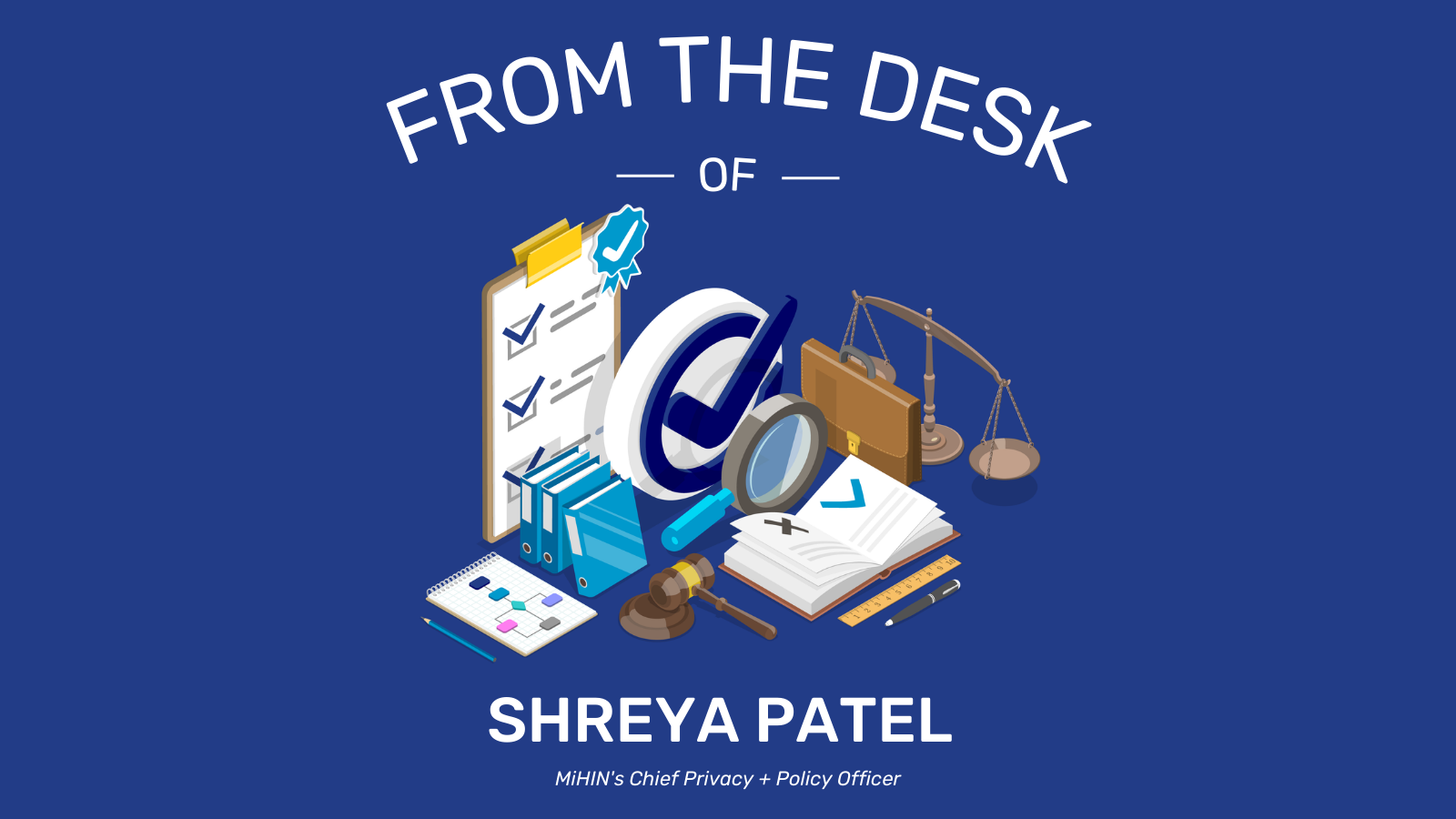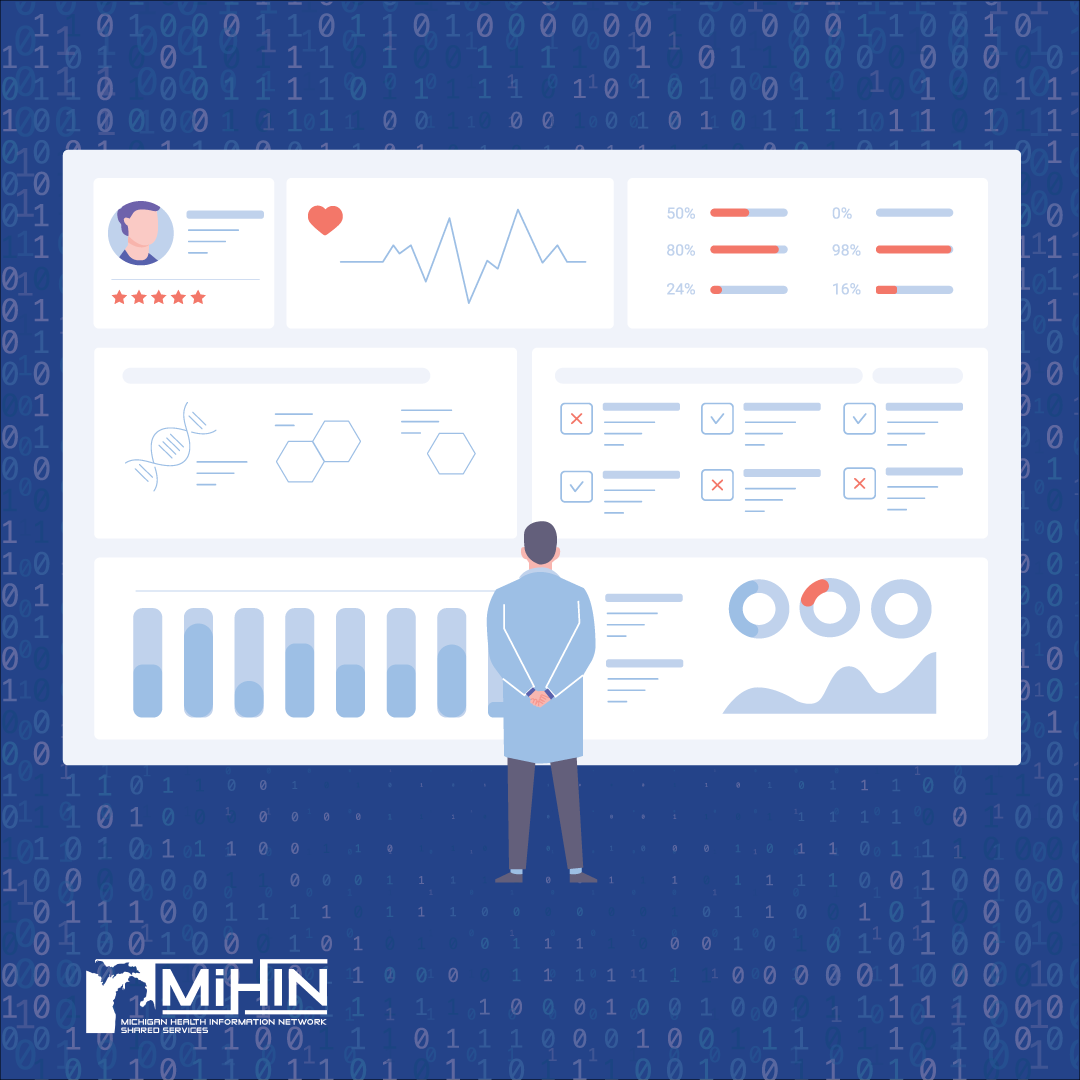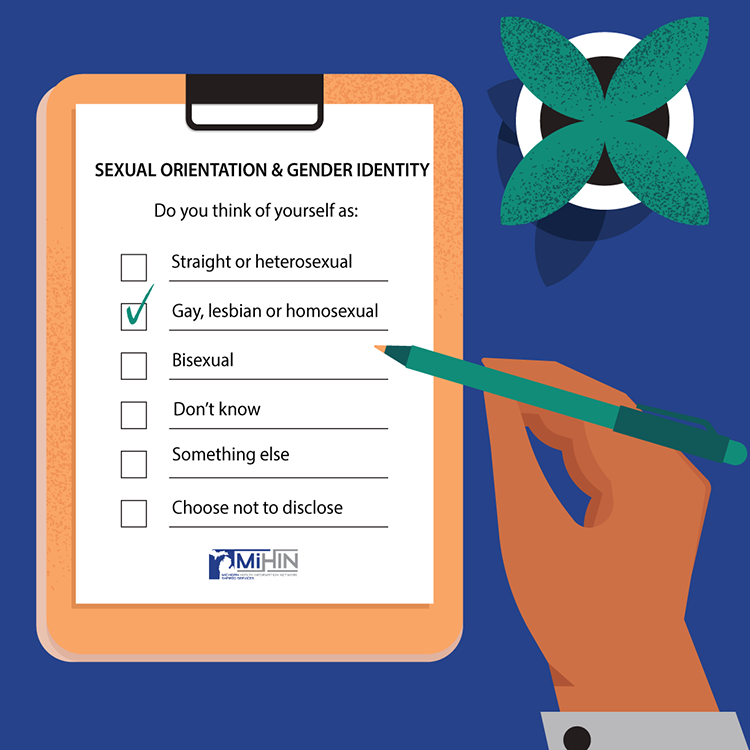HINfluence
Thought Leadership Blog. Click a post title below to open it.
From the Desk of Shreya Patel – Privacy & Policy Updates from MiHIN

In the public policy space, two federal changes will affect the way health information is shared across different stakeholders.
In a landmark bill titled, the American Data Privacy and Protection Act, an emphasis is placed on a concept called “privacy by design.” This bill’s objective is to shift the burden of privacy onto entities who collect data as opposed to the patients themselves. It does this by prioritizing patient protections such as data minimization, ability to edit and correct information, the right to collect information on oneself, and prohibitions on advertising. While ADPPA would not preempt HIPAA, it would supplement it and apply to those organizations who may not be subject to HIPAA. MiHIN will be creating a brief for MiHIN Participant Organizations, which will be distributed in July 2022.
Also noteworthy is the continued emphasis on behavioral and mental health. In President Biden’s gun safety bill, healthcare was also emphasized through funding. This included increased funding for school health centers, behavioral health clinics, Pediatric Mental Health Care Access, screening, and treatment. The Senate Finance Committee intends to further work in the healthcare space with the introduction of bipartisan legislation. MiHIN will be tracking with these activities to ensure our products and services are adapted to the evolving behavioral health landscape.
Pride Month – SO/GI Data Sharing

We’ve delved into what SO/GI is and why standards are important – but our bread and butter is data sharing. Let’s talk about it ▼.
According to EHR Intelligence, national data standards for SOGI data could be around the corner. A new study outlined a conceptual HL7 model for clinical EHR documentation that aims to more accurately record patients’ sex and gender within the EHR. The HL7 Gender Harmony Logical Model has five major elements: gender identity (GI), sex for clinical use, recorded sex or gender (RSG), name to use (NtU), and pronouns.
The HL7 community of standards has begun to work with the researchers to incorporate the proposed changes into each of the existing HL7 standards; V2, CDA, and FHIR. Ultimately, the implementation of the health IT data standards will boost care delivery for gender-marginalized patients, the researchers noted.
Collecting SO/GI data in electronic health records (EHRs) is essential to providing high-quality, patient-centered care to LGBT individuals. SO/GI data collection has been recommended by both the Institute of Medicine and the Joint Commission as a way to learn about which populations are being served, and to measure quality of care provided to LGBT people. Gathering this data is therefore an important part of identifying and addressing LGBT health disparities in health centers and other health care organizations.
In fact, in 2015 the Centers for Medicare and Medicaid Services (CMS) and the Office of the National Coordinator for Health Information Technology (ONC) issued rules requiring all electronic health record (EHR) systems certified under the Meaningful Use incentive program to have the capacity to record, change, and access structured SO/GI data. The requirement applies to vendors who are building certified EHR systems and to health institutions and practices that are using these systems as part of their participation in the Meaningful Use program.
Exchange of SO/GI data between healthcare organizations will improve the patient experience and improve the reliability of information available to clinicians, therefore enabling quality care relationships for gender-marginalized people.
To learn more about SO/GI data, click here: https://www.healthit.gov/isa/uscdi-data/sexual-orientation
Pride Month – What is SO/GI Data?

We’re continuing our Pride Month series on SO/GI data, what it is and why it’s important! Let’s get down to the nitty gritty: what is SO/GI data? SO/GI = sexual orientation and gender identity. According to the National LGBT Health Education Center, lesbian, gay, bisexual, and transgender (LGBT) people are often “invisible” to their providers. This invisibility masks disparities and impedes the provision of important health care services for LGBT individuals.
As healthcare organizations look to SO/GI EHR documentation to improve health equity for gender-minority patients, a lack of national data standards limits data usability across the care continuum, according to a study published in JAMIA.
The lack of standards makes it difficult for data such as gender identity, birth sex, correct name, or pronouns to be exchanged reliably among systems,” the study authors noted. “The lack of standards also makes it difficult to benchmark performance in data collection and use,” they added. “The result is that even though individuals may provide information, and have it stored accurately in one system, it may not always be used to provide respectful, inclusive services across the continuum of care.”
Because of the lack of concepts, terms, and codes, health professionals cannot learn more about sexual and gender minority health needs and long-term health outcomes. Gender-inclusive EHR data standards are essential for achieving health equity.
To learn more, click here: https://www.healthit.gov/isa/uscdi-data/sexual-orientation
